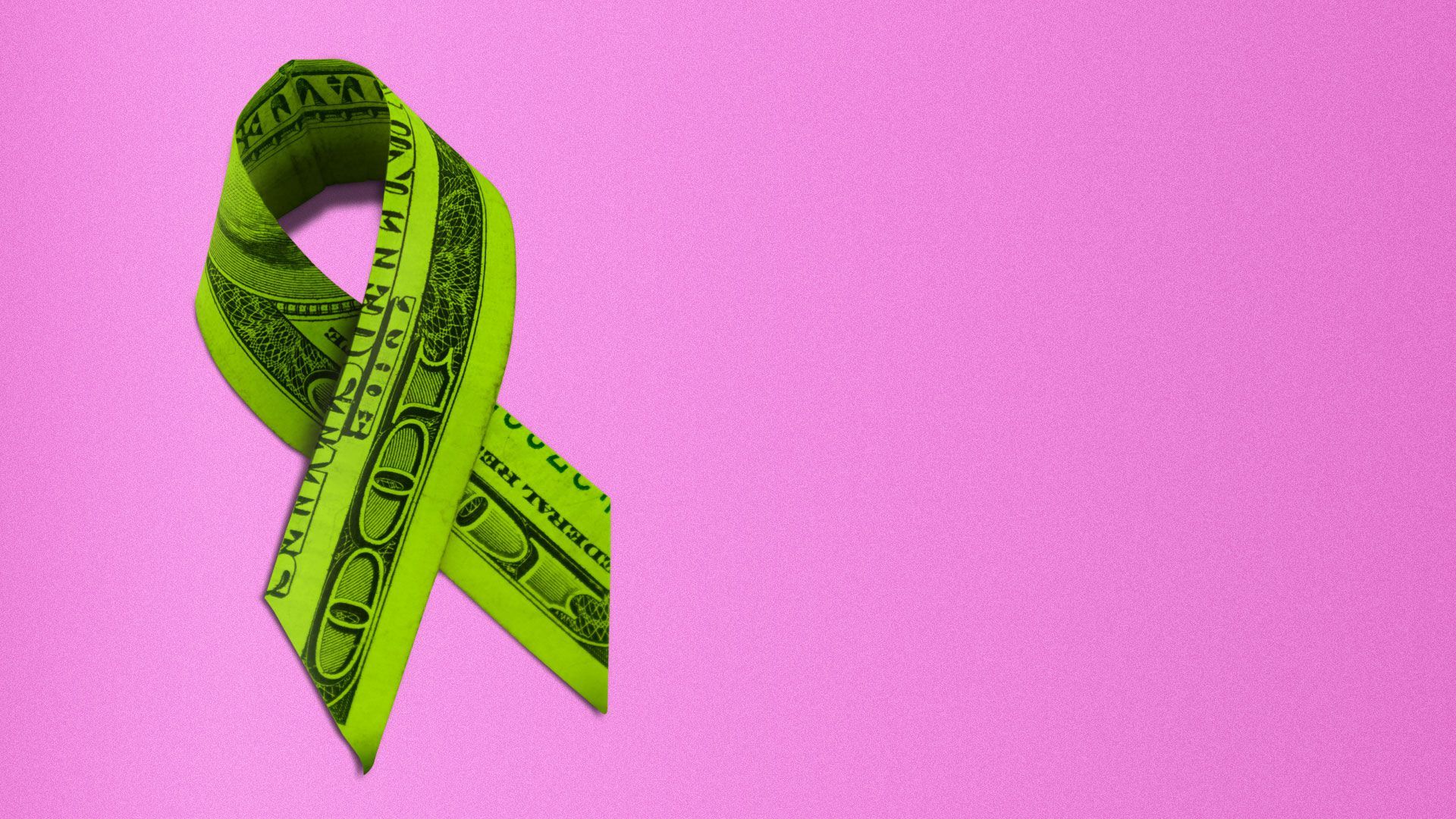The pandemic shows that the future of aid is cash
Add Axios as your preferred source to
see more of our stories on Google.

Illustration: Aïda Amer/Axios
The coronavirus pandemic has highlighted the value of simply giving cash to those in need.
Why it matters: The worst economic effects of the pandemic have been partially ameliorated by no-strings-attached cash transfers. With the economy unlikely to recover for months or longer and the job-destroying threat of automation growing, the pandemic could be laying the groundwork for a universal basic income.
What's happening: The charity GiveDirectly announced recently it had successfully delivered $1,000 cash payments to 100,000 American families since the start of the pandemic, as part of the largest direct giving response to COVID-19.
- The organization targets the states with the highest rates of unemployment, then allows a random set of users to fill out basic forms to receive $1,000 via direct deposit, check or an app like PayPal.
The big picture: UBI has become a favorite idea of many in Silicon Valley who believe it might help offset the negative effects of automation, and it formed the basis of Andrew Yang's presidential campaign.
- One argument against UBI is that regular cash payments would discourage people from working. Many Republicans insist that is exactly what the extra $600 a week in unemployment benefits put in place at the start of the pandemic has done.
- But while the additional money may impede recruitment for workers in low-wage jobs — who might be able to make more from the subsidies than they would working — on the whole research has found no relationship between the size of the benefits and the likelihood of someone taking a job.
- As automation accelerates during the pandemic, many of the jobs lost might never return, strengthening the case for ongoing cash payments and potentially a UBI. That's one reason why last month 11 city leaders around the U.S. came together to form Mayors for a Guaranteed Income, with the goal of advocating for direct, recurring cash payments.
Background: GiveDirectly was founded a decade ago by a group of economists and, until the pandemic, had mostly focused on transferring money to the poorest of the poor in sub-Saharan Africa.
- Direct cash payments "are typically one of the cheapest ways to provide help," says Managing Director Joe Huston. "It lets people who are in need set their budget because they have the best sense of their priorities."
Context: Direct cash payments remain a tiny proportion of overall philanthropic giving, which in turn is only large enough to meet a tiny proportion of overall need, especially in the midst of a pandemic. More effective support requires the public purse — and that's exactly what many governments are doing.
- The extra unemployment benefits in the U.S. currently add up to some $15 billion in support each week.
- In June Spain launched a program to offer monthly payments of more than $1,000 to the country's poorest families, whether they're employed or not, in the largest experiment yet with UBI.
What to watch: The extra $600 unemployment benefit for Americans is set to expire next week, and Congress is still debating on whether and how to extend the subsidy at a moment when tens of millions of people are still out of work.
- GiveDirectly is continuing to expand its $1,000 cash payment program in the U.S., with the goal of reaching another 96,000 families.
The bottom line: UBI has been on the fringes of policy discussions for decades, but the unprecedented shock of the pandemic could finally push it into the mainstream.
Editor's note: This story has been update to reflect that GiveDirectly hopes to expand its cash payment program to reach another 96,000 families, not 200,000.
